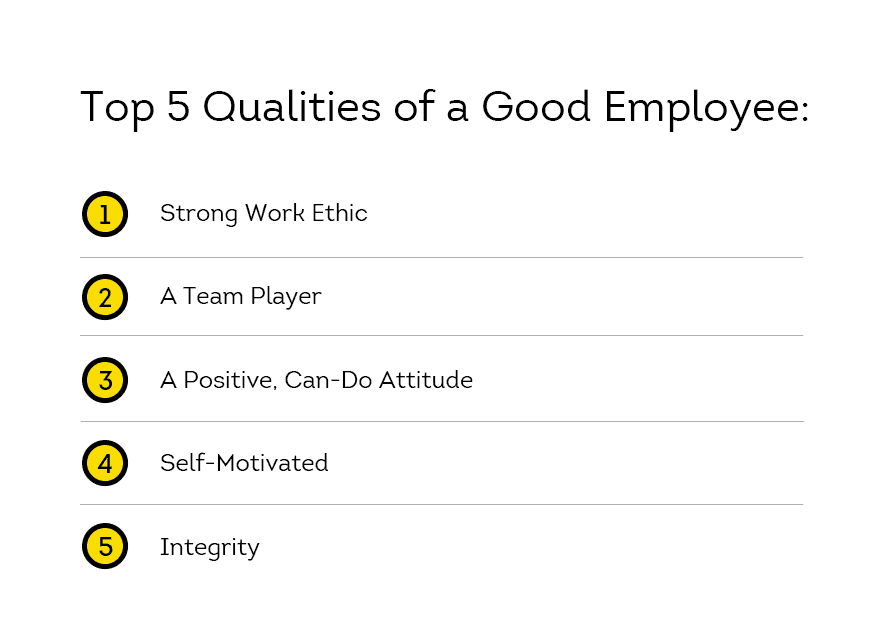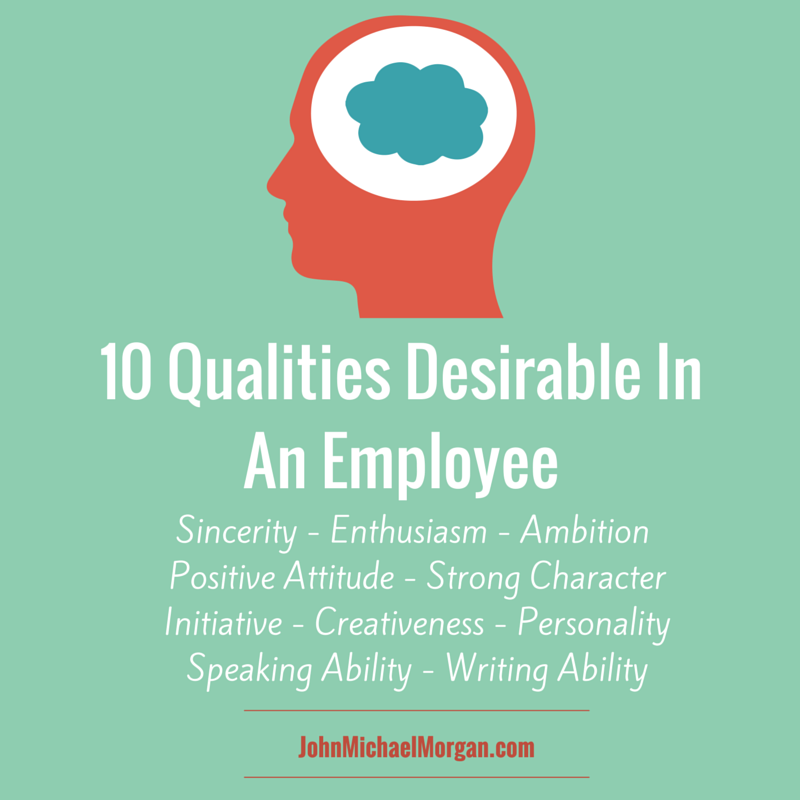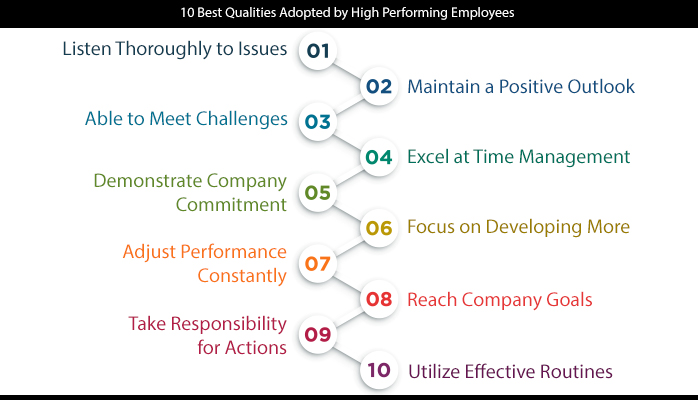Characteristics Of A Good Employee
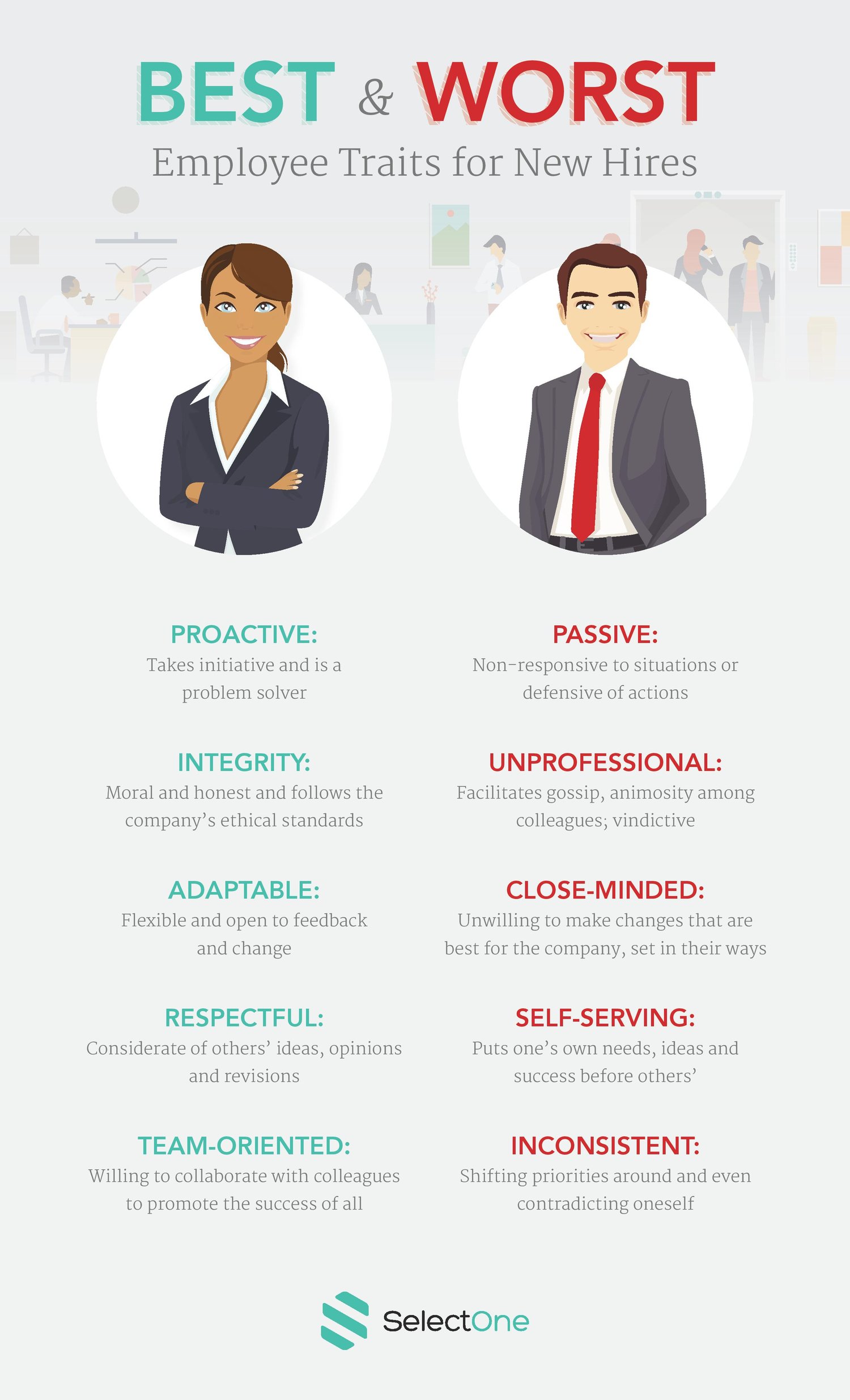
In today's competitive job market, understanding the characteristics that define a good employee is crucial for both individuals seeking employment and organizations aiming for success. Beyond technical skills, certain qualities consistently contribute to a positive and productive work environment. These attributes, often referred to as soft skills or core competencies, are increasingly valued by employers across various industries.
This article delves into the key characteristics that define a good employee. It examines traits such as reliability, communication, problem-solving, and adaptability. This examination is based on industry reports, expert opinions, and organizational studies.
Essential Characteristics of a Good Employee
Reliability is perhaps the most fundamental trait. An employee who consistently delivers on commitments, meets deadlines, and takes ownership of their work is invaluable. This dependability fosters trust within the team and allows managers to delegate tasks with confidence.
A study by SHRM (Society for Human Resource Management) highlights that reliability is often the first thing employers look for. This is because it forms the bedrock of a functional team.
Effective communication skills are also paramount. This includes the ability to articulate ideas clearly and concisely, both verbally and in writing. Active listening and the capacity to understand different perspectives are equally important.
Poor communication can lead to misunderstandings, errors, and conflicts within the workplace. Conversely, strong communication promotes collaboration, innovation, and a more positive work atmosphere.
Problem-solving abilities are highly sought after. Good employees are proactive in identifying challenges and developing creative solutions. They are resourceful, analytical, and capable of thinking critically.
According to a 2022 report by the World Economic Forum, problem-solving is one of the top skills that will be in demand in the coming years. This highlights the increasing importance of employees who can navigate complex situations effectively.
Adaptability is increasingly critical in today's rapidly changing work environment. Employees who can quickly adjust to new technologies, processes, and priorities are more likely to thrive. This includes a willingness to learn and embrace new challenges.
Organizations that foster a culture of adaptability are better positioned to respond to market shifts and maintain a competitive edge. This is according to research by McKinsey & Company.
Teamwork and collaboration are also key ingredients for success. A good employee is a team player who is willing to support colleagues, share knowledge, and work towards common goals. They are respectful, empathetic, and able to build strong working relationships.
Strong teamwork leads to increased productivity, improved morale, and a more innovative work environment. Employees who are able to collaborate effectively are invaluable assets to any organization.
Beyond these core skills, professionalism is also vital. This includes maintaining a positive attitude, adhering to ethical standards, and representing the organization in a positive light. A professional demeanor builds trust with clients, colleagues, and stakeholders.
The Impact on Organizations and Individuals
Organizations that prioritize these characteristics in their hiring and development practices are more likely to attract and retain top talent. This can lead to increased productivity, improved customer satisfaction, and a stronger bottom line. Investing in employee development programs that focus on these skills can yield significant returns.
For individuals, cultivating these characteristics can enhance their career prospects and increase their earning potential. Demonstrating these qualities during the hiring process can significantly improve their chances of landing a job. Furthermore, these attributes are essential for career advancement and long-term success.
"The soft skills are the new hard skills." - Josh Bersin, Global Industry Analyst
Continuous learning is crucial in a constantly evolving landscape. Employees who are committed to expanding their knowledge and skills are more valuable to their organizations. This includes seeking out opportunities for professional development, staying abreast of industry trends, and embracing new technologies.
The ability to take initiative is another desirable trait. This demonstrates proactiveness and commitment. This allows for employees who identify opportunities for improvement and take action without being prompted.
Ultimately, the characteristics of a good employee extend beyond technical expertise. They encompass a range of interpersonal and personal qualities that contribute to a positive and productive work environment. By focusing on these attributes, both individuals and organizations can achieve greater success.



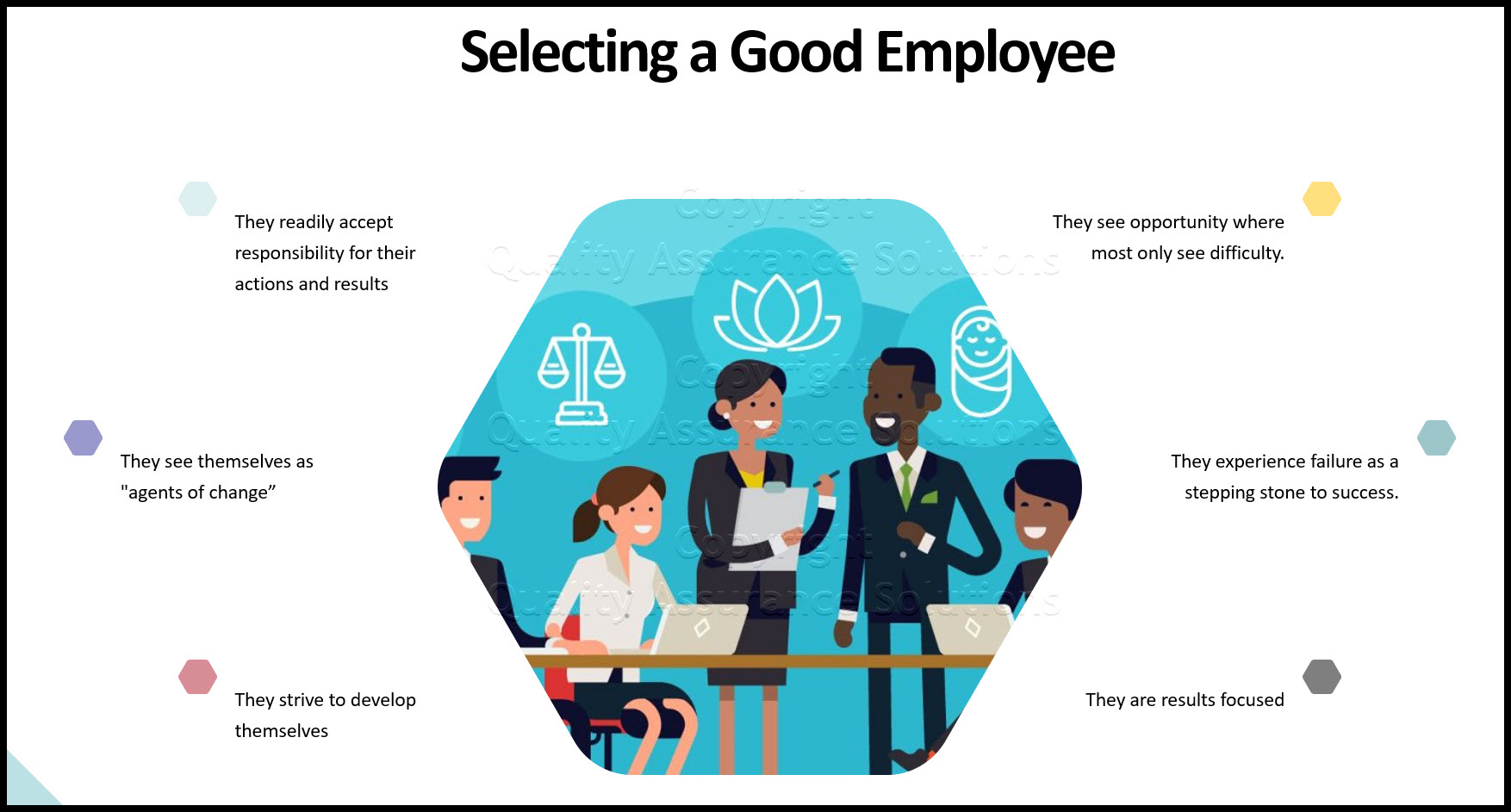

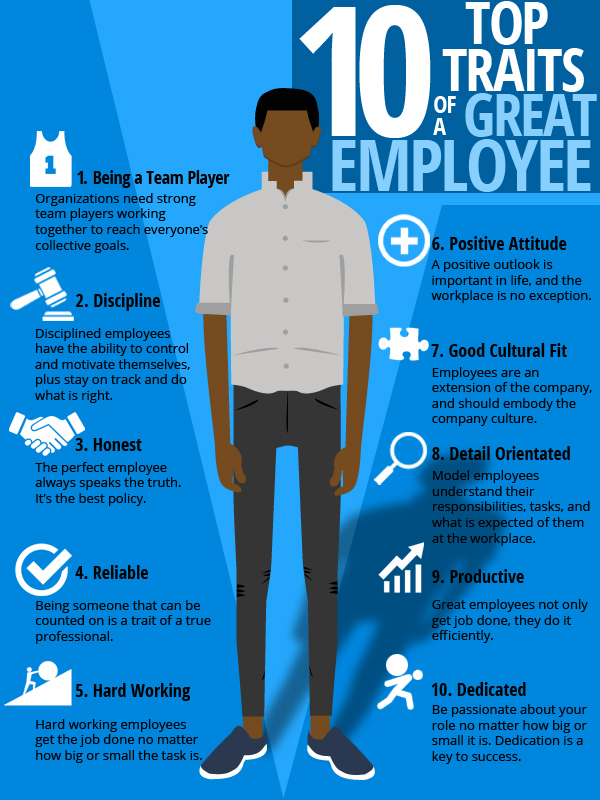
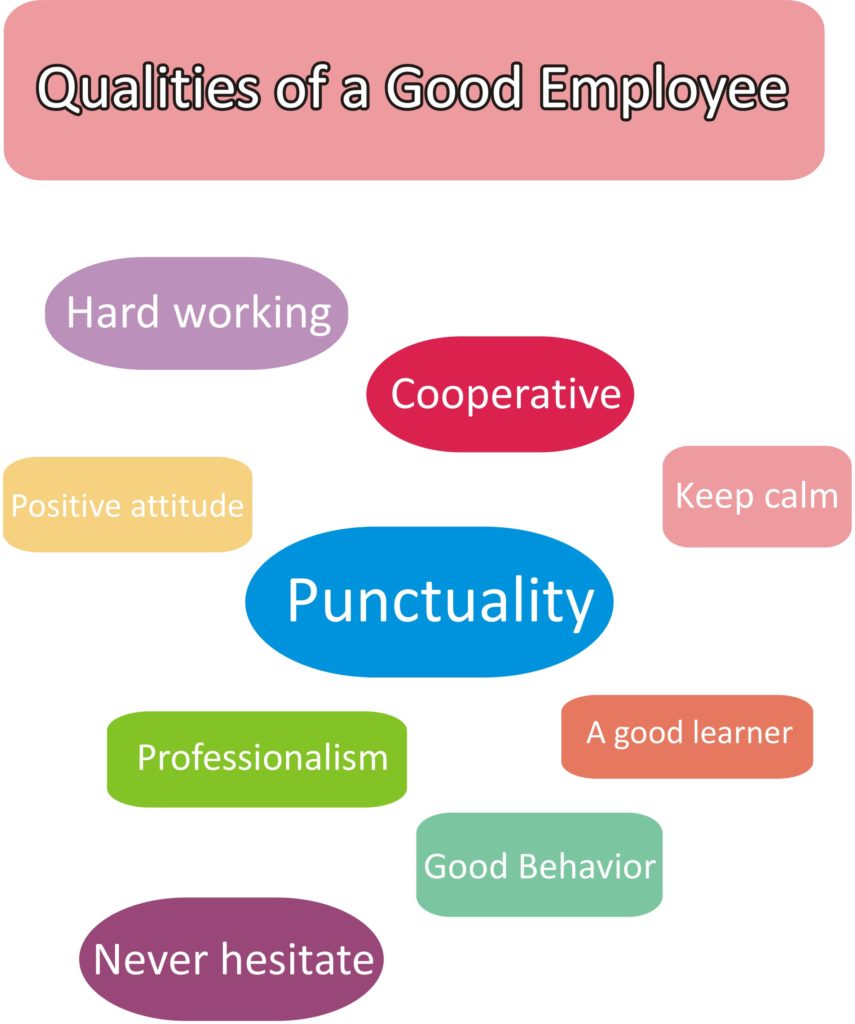
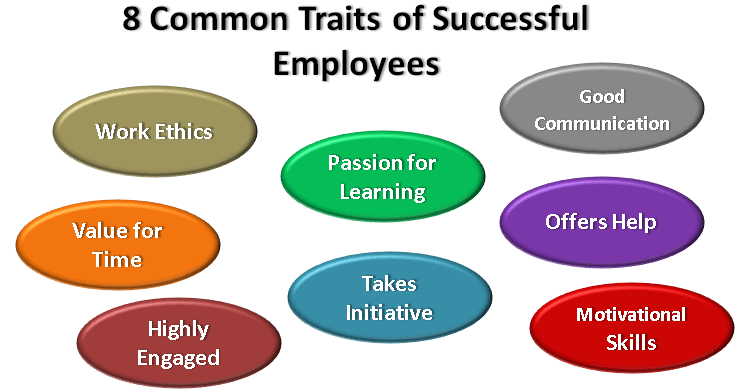
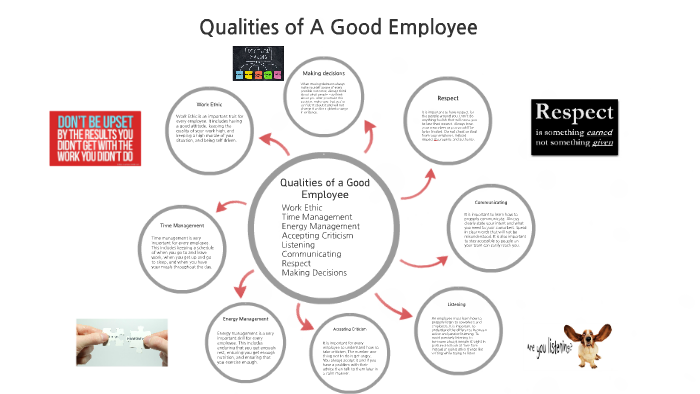

![Characteristics Of A Good Employee Top 10 Traits Of The Most Talented Employees [Infographic] | Good](https://i.pinimg.com/474x/a4/0e/cb/a40ecbbfa24dd3c4053538d19b05fade--top-ten-career-development.jpg)

